“Eclectic” is a word that often gets thrown around by lazy music journalists trying to describe a band, but it’s truly the right word for describing Fishbone, who has been throwing ska, funk, hard rock, soul, and more into the mix for over three decades. To get a sense of their diversity – and overflowing talent – listen to “Party at Ground Zero”, “Sunless Saturday”, and “Everyday Sunshine”, and try to wrap your head around the fact that these were all recorded by the same band. And that’s just scratching the surface.
This interview was for a preview article for the 2/6/16 Fishbone concert at Velvet Jones in Santa Barbara, for which the band’s line-up included original vocalist / sax man Angelo Moore (aka Dr. Madd Vibe), bassist Norwood Fisher, and trumpeter Dirty Walt. It was done by phone on 1/29/16.
Jeff Moehlis: What can people look forward to at the upcoming show?
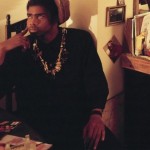
Norwood Fisher: We’re going to come through and give a full retrospective musically. We change what we play from night to night on some level. It’s not necessary to play something off of every recording, but it is absolutely like you get a full sense of the history of the band, and you get plenty of current material.
You know, we come, we bring the A-game, man. The musicianship is as high as we can ratchet it up. We’re going to bring you the stage show and give physically as much as we can, in hopes that the audience receives it and gives it back to us, and we just keep rising higher.
JM: I’m guessing that it’s hard for you to believe, but Fishbone’s first recordings were released about 30 years ago. What was the LA music scene like when you were working on those, and what are your reflections on those first recordings?
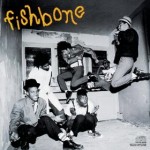
NF: We had an amazing energy, a youthful exuberance that got captured on that first EP. We’re very fortunate that the things that we laid down there kind of influenced a generation of musicians, and that influenced another generation. With the exception of some very specific subject matter, a lot of it is still relevant, for better or for worse. It feels amazing to be able to say that, to be able to know that there are people who are still discovering the band, and the gateway a lot of times is still “Party at Ground Zero”. It makes for an incredible ride.
JM: I understand that back in the early days Fishbone had some kindred spirits in bands like the Red Hot Chili Peppers and, a little later, Jane’s Addiction. What was it like interacting with those guys when you all were just starting to become known as bands?
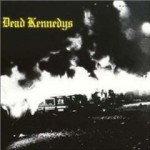
NF: It was a great time in music in Southern California. There was music all over California, actually. We came in just after that initial burst of California punk rock. Some of the more popular bands like Fear, The Dead Kennedys, Black Flag, X, all of those bands laid the groundwork before we came up. We stood on that, and enjoyed the freedom that they kind of stood on the barbed wire and pushed the boundaries for.
With those bands like Chili Peppers and later Jane’s Addiction, The Untouchables – it felt good to have bands that you could respect. We were all in a mutual admiration club. And then there was some friendly competition, because we were all trying to take it to the stage and make it amazing. It was great for audiences, you know? It felt good, it felt good. Most of those bands at some level, everybody that I mentioned, we still have some kind of connection to them, and consider them friends. Thelonius Monster, as well.
JM: Are there any crazy tour stories that you’re willing to share from that time? I know that in the 1980’s you toured with the Red Hot Chili Peppers and The Beastie Boys.
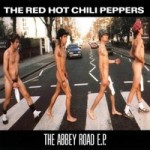
NF: You know what? It was wild. There was no social media, so you could do certain things and maybe the charges wouldn’t be so severe [laughs] as they are today. There was a lot of nudity. The Chili Peppers – we ran around naked a lot, like in hotels, jumping in pools naked, being onstage naked. You’d have a sex offender charge right now [laughs].
JM: Is it safe to say that there won’t be any nudity when you play here in Santa Barbara?
NF: Yeah, you know that nudity thing don’t quite work the same.
JM: One of the things that the fans like about Fishbone is that you guys play in such a diverse set of styles. Where does that come from? What drove the band to keep exploring new things?
NF: Musically it was a fertile time. A lot of things were brand new, and for us personally maybe it represented our record collections. There were some people who had, like, one thing in their record collection – “I only listen to metal”, or “I only listen to soul”, or “I only listen to jazz”. Most people that we knew had diverse record collections. For us, in my mind, it was totally natural, because we were just playing what felt right to us.
The 70’s bore a lot of amazing fruit, musically. Reggae came up in the 70’s, punk rock was brand new in the 70’s, ska – the way that we began to know it from the English groups – came out of the 70’s. Hip hop was a product of the 70’s – it was born out of the 70’s. So was techno, like Kraftwerk. It still goes back to the 70’s. You start hitting clubs in the 80’s, and you wanted to play with most of that. I mean, we didn’t do every single thing that I mentioned. But all of that stuff was still brand new on a certain level. Death rock, goth kind of stuff was a brand new thing in the late 70’s.
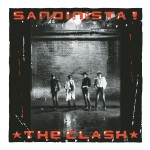
So it was just a lot of different things, and we played with as much that felt right to us. The influence of bands like Sly and the Family Stone, Parliament/Funkadelic, The Clash, right? The Clash did a lot of different kinds of things. They were considered a punk rock band, but you listen to Sandinista!, it’s kind of all over the place. London Calling, you’ve got a lot of different kinds of music on it. So, you know, we just did what came naturally. And the fact is that the stuff which came out of punk rock and New Wave was all different splintered forms of music – it just felt like it was there for us to do. It came naturally.
JM: One of the stranger stories in the Fishbone saga is when your guitarist Kendall Jones joined a religious cult, and you went to save him. When you look back on that now, what are your reflections on that incident and its aftermath, how it affected the band? [JM: This led to Norwood being charged with kidnapping; he was acquitted after a costly trial.]
NF: I can honestly say that I did something based on things that were told, and now I can look back and say that I don’t know anything. I didn’t know anything then – I thought I did – and I don’t know anything now. I did what seemed like the right thing to do. Me, wiser, older, I can honestly say that maybe that wasn’t the thing to do. Other than that, I don’t know, maybe I don’t want to say too much about that.
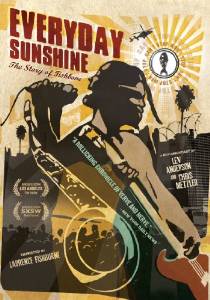
JM: Fair enough. On perhaps a happier note, the documentary “Everyday Sunshine” came out a couple years ago. Are you happy with how that came out, and how the band was portrayed?
NF: Overall, yeah. Mostly, I can say it was honest. I look at it, and I say, “Yeah, I said that.” In hindsight, I’m like, maybe I wish I would’ve said something different. Maybe since then I’ve got another perception of life. So be it. But at the time, they didn’t put words in my mouth. You know, they didn’t make it seem like I said something I didn’t say. And with that, I can say it’s honest as fuck.
JM: That’s what you you want from a documentary, right?
NF: Yeah, exactly.
JM: What advice would you give to an aspiring musician?
NF: My advice would be to just play as much as you can. And make sure that when you look at what you’re up to, make sure that you love it. Life will end up being short – when you reach my age and you look back, you’re like, “Whoa, that went by fast.” So try your best to play the music that you love.
If you are fortunate enough to make music with people that you can honestly say you love, hold on to it. Figure out, find out what it means to be really good friends, and keep a high level of communication.
But most of all, honor the music. Make music that is as amazing as possible, and honor the music. And stay open and explore. Even if you don’t present everything that you explore in your music, stay open and be a sponge. It’s possible, if you have the right attitude, you’ll never stop learning. No matter how amazing of a musician you become.
JM: What are your plans, musical or otherwise, for the near future? Are you guys talking about recording some new stuff?
NF: Yeah, we’ve been writing new material. Hopefully we’ll have a new release, and have some new surprises, explore some different areas, keep on trying to create something that’s never been done before. Whether we are successful or not, you be the judge. But we just keep trying, and that’s what keeps it interesting for us. Ultimately, we stay creative and we’ve got a lot of options before us, and we plan on exploring them all.
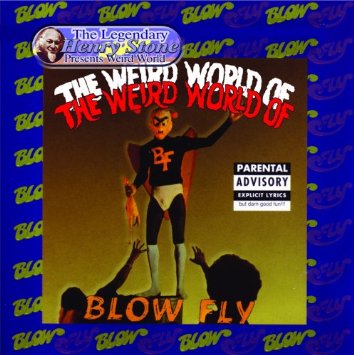
JM: You played with Blowfly, who recently passed away. Can you tell me a little bit about what it was like to play with him?
NF: Yeah, man, I had the time of my life with Blowfly. I was a fan since 9th grade. I remember the day that I first heard a cassette of “Rapp Dirty”. It was the most profane, gnarly thing [laughs] that I could imagine at the time. You know, it felt like it should’ve been illegal.
Probably close to ten years later I met the man, and began to be friends with him, did some recordings with him, did a couple videos with him. He actually introduced me to Isaac Hayes, because under his real name – Clarence Reid – he was a staff songwriter at Stax Records, and Isaac Hayes was his writing partner. As Clarence Reid, he penned a lot of music that is the tapestry of our heritage musically. They say he wrote more than 2000 songs, and a lot of them made it onto people’s records.
But it was like, hey man, I had the time of my life playing bass with Blowfly. I recorded him on my side project Trulio Disgracias. I’ve been planning on releasing it for a few years now, and I’m going to absolutely get it out this year. I’m working on that now, the distribution right now.
I took him on tour with Fishbone. He toured with Fishbone, he toured with Trulio Disgracias through the 90’s, and into the 2000’s I was doing stuff with him. The documentary “The Weird World of Blowfly”, part of that was shot while I was on tour with him. I’m so sad that he’s gone. I was hoping that I’d be able to do more work with him. But in his absence, I definitely want to figure out a way to honor his legacy. So keep your ear to the ground for that. I don’t know what I’ll do – you know, combine a few people who feel the same way, and do something as big as we can make it.

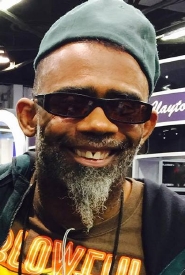
Discussion
No comments for “Interview: Norwood Fisher”